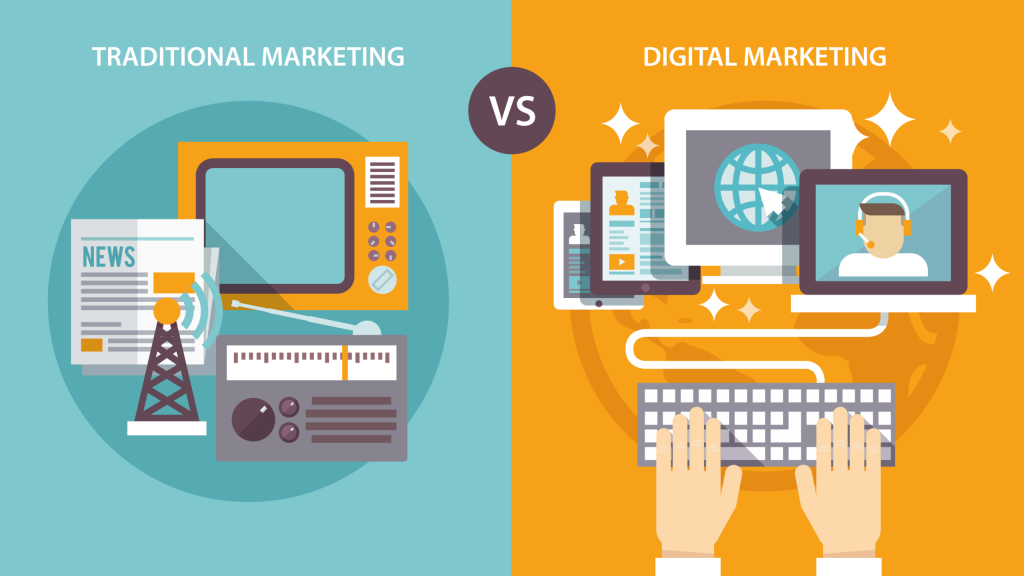In the fast digital age, one topic is on the agenda of every business leader: digital marketing. But what exactly is digital marketing, how does it work, and why is it so critical for businesses?
This guide explores everything from the definition of digital marketing to its types, tools, budget planning, and application examples. Designed as a practical resource, it is both informative and actionable for entrepreneurs and small businesses. It also reflects the foundational knowledge we share with every client at Pella Global.
What Is Digital Marketing?
Digital marketing is the strategic use of online platforms and channels to reach, engage, and build relationships with target audiences. Through social media, search engines, websites, and email, businesses can create visibility, attract new customers, and strengthen loyalty.
Digital marketing goes beyond simply running ads. When guided by the right strategy, timing, and messaging, it becomes the pathway to sustainable, long-term growth. At Pella Global, our vision as a leading digital marketing agency is to deliver strategies with a holistic approach, ensuring businesses thrive in competitive markets.
How Digital Marketing Differs from Traditional Marketing

Traditional marketing relies on offline channels such as television, radio, newspapers, or brochures. These methods reach broad audiences but often without clear measurement.
Digital marketing, by contrast, is measurable, segmentable, and highly personalizable. For example, when a brand runs a social media campaign, it can see exactly which age groups engaged, what actions were taken, and which audiences converted, all in real time.
Even with modest budgets, digital channels deliver impactful campaigns, creating major opportunities for small and medium-sized businesses. This is where partnering with a professional digital marketing agency can unlock even greater efficiency and results.
Benefits of Digital Marketing for Businesses
- Increases brand visibility
- Creates direct, two-way communication with audiences
- Expands reach to new potential customers
- Boosts sales conversion rates
- Strengthens loyalty and long-term relationships
- Enables precise performance tracking and optimization
Types of Digital Marketing and Application Examples
Digital marketing covers a wide spectrum of strategies, each offering unique strengths. Here are the most effective and commonly applied types:
1. Search Engine Optimization (SEO)
SEO improves a website’s ranking in search engines through technical adjustments, content optimization, and link-building strategies.
- Example: Ranking organically in Google search results by optimizing content and keywords, ensuring sustainable visibility.
2. Search Engine Marketing (SEM)
Also known as paid search, SEM involves running ads on platforms like Google Ads, based on selected keywords.
- Example: A consulting firm in Istanbul appears at the top of search results for “business setup consultancy” through paid ads.
3. Social Media Marketing
Social platforms like Instagram, Facebook, and LinkedIn connect businesses directly with their audience, driving engagement and awareness.
- Example: A leather craftsman gains followers by sharing reels of the product-making process on Instagram.
4. Content Marketing
Content builds authority and trust by providing valuable, educational, and engaging information.
- Example: Blogs and guides rank high in search results, offering helpful insights while increasing organic brand visibility.
5. Email Marketing
Email campaigns nurture relationships and strengthen brand connections with personalized, targeted communication.
- Example: A fashion brand sends loyal customers exclusive previews of its seasonal collections.
6. Influencer Marketing
Brands collaborate with creators who have strong community influence to share authentic messages with wider audiences.
- Example: An organic skincare brand partners with a wellness influencer to showcase product use and results.
7. Affiliate Marketing
Partners promote your product in exchange for commission on sales generated.
- Example: A tech YouTube channel adds a referral link for a microphone, earning commission on each purchase.
Tools Commonly Used in Digital Marketing
Digital marketing thrives on tools that provide insights, automation, and design support. Popular tools include:
- Google Analytics: Tracks website traffic and user behavior
- Semrush / Ahrefs: Analyzes competitors and keyword performance
- Mailchimp: Automates personalized email campaigns
- Meta Business Suite: Manages Instagram and Facebook ads in one place
- Hotjar: Shows where users click and spend time on your site
- Canva: Quickly creates eye-catching visuals for social media
How to Plan a Digital Marketing Budget
Budget allocation depends on your goals, industry, and competition. At Pella Global, we guide businesses in directing their resources to the most impactful areas.
Scenario:
A new beauty centre opening locally may allocate budget as follows:
- SEO-focused website development
- Instagram-first content strategy
- Seasonal Meta ad campaigns
- Loyalty-driven email campaigns
This balanced approach creates sustainable visibility and customer loyalty.
How a Successful Digital Marketing Process Works
- Goal Setting: Define your digital objectives clearly, whether brand awareness or sales growth.
- Target Audience Identification: Understand your audience’s needs and behaviors.
- Channel Selection: Choose the platforms that best fit your goals and audience.
- Content Strategy: Create messaging that reflects your voice and resonates with your audience.
- Performance Tracking: Continuously measure, analyze, and refine campaigns.
Why Professional Support Matters in Digital Marketing
The digital landscape evolves rapidly, with new platforms, algorithms, and user behaviors emerging constantly. Professional expertise saves time, maximizes resources, and keeps strategies effective.
A professional agency:
- Develops strategies aligned with your goals
- Integrates campaigns with strong technical foundations
- Provides regular reporting and optimization
- Guides in challenging or crisis situations
- Ensures marketing investments deliver maximum impact
At Pella Global, we combine technical expertise with creative strategies to position your business for long-term success.
Contact us today to start shaping your digital journey.